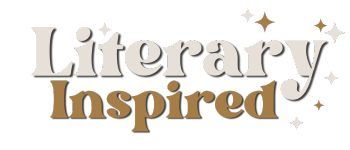When the topic of romance novels comes up, it’s easy for some to dismiss them as mere escapism filled with clichés and predictable love arcs. But let’s set the record straight: romance novels are a force to be reckoned with, especially when it comes to empowering women. Far from being just “fluff,” these books serve as a catalyst for change, challenging societal norms and offering women a platform to explore their own narratives.
The Essence of Romance Novels: More Than Just Love Stories
At the heart of every romance novel is the exploration of relationships and the transformative power of love. But it’s not just about finding “the one.” It’s about women discovering their own worth, learning to love themselves, and understanding that they deserve happiness in whatever form it comes. Romance novels provide a sanctuary—a safe space where women can delve into their innermost desires, emotions, and even fears. They offer a lens through which women can view their own experiences, and often, they find they’re not alone.
Celebrating the Power of Female Agency
One of the most striking aspects of modern romance novels is the portrayal of strong, independent heroines. These are women who are masters of their own fate, unafraid to chase their dreams, take calculated risks, or voice their opinions. They defy the societal norms that often box women into certain roles. Through these characters, romance novels send a powerful message: women are not just side characters in their own lives; they are the authors of their own stories.
Breaking Down Gender Stereotypes
Romance novels are a battleground for challenging traditional gender roles. Gone are the days when these stories were solely about damsels in distress saved by their knight in shining armor. Today’s romance literature features complex, multi-faceted characters, both male and female, each with their own ambitions, desires, and imperfections. These books offer a nuanced look into the male psyche, allowing women to better understand and connect with the men in their lives, breaking down barriers and fostering more meaningful relationships.
Sexual Empowerment: A Taboo No More
Another area where romance novels shine is in the realm of sexual empowerment. Far from the prudish or overly idealized depictions of yesteryears, contemporary romance novels often feature sex-positive heroines who own their bodies and their desires. These stories serve as a liberating force, affirming that women have every right to seek pleasure and fulfillment, free from shame or judgment.
The Community Aspect: A Sisterhood Forged in Shared Stories
Beyond the pages, romance novels have played a pivotal role in building communities. Whether it’s online forums, book clubs, or social media groups, these spaces offer women a platform to connect, share, and uplift each other. It’s a unique form of sisterhood, bound by the love for stories that resonate with their own lives. Here, women can share book recommendations, discuss intricate plot points, and even offer emotional support, making these communities invaluable in fostering real-world connections.
FAQs: Common Questions About Romance Novels and Women’s Empowerment
- Are romance novels feminist? While not all romance novels explicitly identify as feminist, the genre has increasingly incorporated feminist themes, such as female agency, consent, and challenging gender norms.
- Do men read romance novels? Yes, men do read romance novels, although the majority of readers are women. The genre offers insights into emotional and relational dynamics that are universal, transcending gender.
- How do I choose a romance novel that aligns with my values? Reviews and recommendations, especially from communities of like-minded readers, can be invaluable. Look for books that have themes or characters that resonate with you.
The Takeaway: Romance Novels as Catalysts for Change
So, the next time someone tries to belittle the genre, remember to highlight the transformative power of romance novels. They’re not just tales of love; they’re narratives of resilience, self-discovery, and empowerment. They remind us that we all have the agency to craft our own happy endings, and that’s a message worth reading about.





